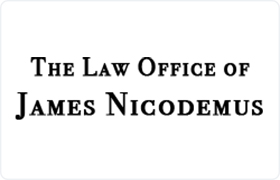Oak Park Child Custody Lawyer, Illinois
Sponsored Law Firm
-
 x
x

Click For More Info:
-
The Law Offices of James Nicodemus
2700 Patriot Blvd Suite 250 Glenview, IL 60026» view mapDivorce & Family Law Experienced Divorce & Family Lawyer
When you need accurate representation, whether it’s a divorce lawyer, family lawyer or child custody attorney, James Nicodemus is there for you.
800-986-5891
Includes: Guardianships & Conservatorships, Custody & Visitation
Thomas J. Polinski
Guardianships & Conservatorships, Real Estate, Wills & Probate, Commercial Real Estate
Status: In Good Standing Licensed: 38 Years
 James Nicodemus Glenview, IL
James Nicodemus Glenview, IL AboutThe Law Offices of James Nicodemus
AboutThe Law Offices of James Nicodemus Practice AreasExpertise
Practice AreasExpertise
